#factory farming
Text
how long will they live?
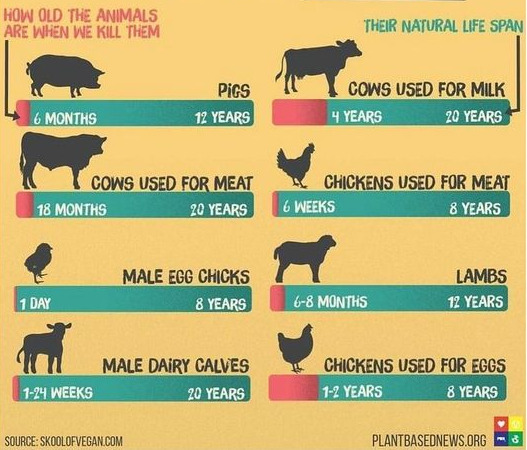
Image with kind permission from Skool of Vegan.
#vegan#veganism#go vegan#go veg#animal rights#animal cruelty#factory farming#stop factory farming#stop factory farms
168 notes
·
View notes
Text
The private sector arm of the World Bank is facing claims that it contributes to global heating and the undermining of animal welfare by providing financial support for factory farming, including the building of pig farming tower blocks in China.
A coalition of environmental and animal welfare groups is calling on the World Bank to phase out financial support for large-scale “industrial” livestock operations. More than $1.6bn was provided for industrial farming projects between 2017 and 2023, according to an analysis by campaigners.
23 notes
·
View notes
Text
No one told me Sorsha moved to TikTok! 👑 (@/sorshamorava)
#video#tiktok#vegan#sorsha morava#veganism#animal cruelty#animal liberation#dairy industry#cows#milk#factory farming
75 notes
·
View notes
Quote
Abuse one animal, and you can be charged with a felony; abuse a million, and you have a business model.
Nicholas Kristof
#factory farming#animal cruelty#farm animals#vegan#vegetarian#i never thought of Nicholas Kristof#as any kind of progressive#so this is progress
61 notes
·
View notes
Text
Wayne Hsiung has been convicted of felony trespass by a court that barred him from including any evidence of ongoing animal cruelty within Sunrise Farms, one of the US's largest egg suppliers. Reports from government investigators showed inhumane conditions, cannibalizing, and chickens that were rotting alive. None of this was allowed to be included in his defense.
Wayne is the founder of the Simple Heart Initiative, you can read more his conviction and what you can do to support him jail while he awaits sentencing there
#vegan#veganism#wayne hsiung#animal rights#right to rescue#carnism#animal agriculture#factory farming
12 notes
·
View notes
Text

#born to die#factory farming#fish farming#animals are not food#animal death#meat is murder#veganism#go vegan
8 notes
·
View notes
Text
Critics of factory farming renewed demands for U.S. policy reforms on Tuesday in response to new federal data on the nation's agricultural activity, which is released every five years.
The U.S. Department of Agriculture (USDA) put out its report about the 1.9 million farms and ranches that collectively spanned more than 880 million acres as of 2022—a loss of nearly 142,000 operations and over 20 million acres since 2017. The document features state tallies and other details including inventory and values for crops and livestock.
"The USDA's new data show that without policy changes, factory farms will continue to get bigger and bigger, wreaking havoc on public health, the environment, and the climate," warned Environmental Working Group (EWG) Midwest director Anne Schechinger.
...
Food & Water Watch (FWW), which also analyzed the new government data, found that "there are currently 1.7 billion animals raised on U.S. factory farms every year; an increase of 6% since 2017, 47% more than roughly 20 years ago in 2002.
"The group emphasized that "as factory farms take over, the number of small dairies raising animals outside the factory farm system plummeted, with barely one-third as many today compared to 20 years ago."
#ecology#enviromentalism#livestock industry#farm animals#factory farming#us department of agriculture
4 notes
·
View notes
Text

Image with kind permission from The Vegan Vibe.
55 notes
·
View notes
Text
RIP to my friend, Hank, who had to be euthanized yesterday.
Hank was found wandering around town last summer, presumably an escapee from a slaughter truck considering his breed, as well as size/age upon intake.
Turkeys like Hank are intentionally and selectively bred to grow as fast as possible in the shortest amount of time possible. This is, of course, to save time, money, and resources for the “farms” raising them.
After only a few weeks, these babies are already too heavy for their own bodies, and they are sent to slaughter. Yes, probably every turkey you’ve ever eaten was still a baby.
A VERY small number of these babies get *super* lucky, and despite all odds, end up at an animal sanctuary like the one I managed last year when we first found Hank. Here, they must be kept on a very strict diet and exercise regimen. Because, even though no one plans to eat them anymore, their biology still betrays their will to live and causes them to carry an excessive amount of weight that puts stress on their legs and organs.
And despite all of the love and effort their sanctuary caretakers put into improving and extending their lives, most of these birds will still die from conditions directly caused by their selective breeding… because, according to the meat industry, the only thing that matters is that these animals can stay alive long enough to reach “slaughter weight.” Whether or not the rest of their bodies can handle that weight is of no concern to an industry that views them as objects, and has no plan to see them live beyond those few weeks.
This is exactly what happened to Hank. His legs and his heart could no longer carry his weight, and despite veterinary intervention, he was no longer able to stand at the end of his life. His heart and breathing were labored, and he was suffering. Hank did not deserve to have his life stolen from him so soon… The only thing to take solace in is that he got to spend 10 whole months in the sun with friends, and got to pass surrounded by those who loved him, a much different fate than 99.9% of all other “meat birds.”
Hank was a sweet, sensitive, handsome boy full of love and hope. He would follow me back and forth all morning while I did the chores, and was never shy about showing off his feathers and strutting his stuff for anyone watching (including himself in the mirror!) He had a best friend, Timmy the rooster, that he cared for and spent all day and night with.
He was a sentient being, no different from the cat or dog you share a home with right now. No different from you or I in any of the ways that matter. We have so much to learn as a species and as individuals when it comes to what really matters in this life…
Please try to remember the individual that once carried around that weight next time you buy a package of meat from the grocery. And remember that every day each one of us has the chance to make a difference in the world through every little decision we make. Choose compassion.


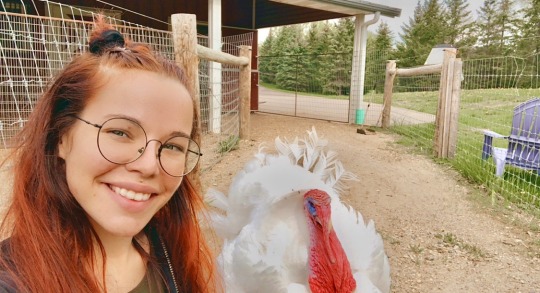
#vegan#turkey#sanctuary#death#factory farming#animal rights#meat#animal sanctuary#love#compassion#life#beauty#kindness
3 notes
·
View notes
Text
The Role of Veganism in Ending Animal Cruelty in Factory Farms
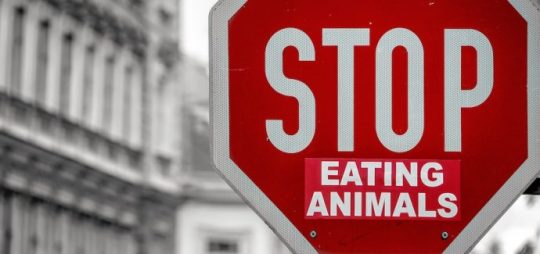
Animal cruelty is a global issue that has garnered increasing attention in recent years. With the rise of factory farming, which refers to the intensive confinement and mass production of animals for food, the scale and severity of animal suffering has reached unprecedented levels. The use of animals for food has been deeply ingrained in human culture for centuries, making it a challenging issue to address. However, with the growing popularity of veganism, a plant-based diet that excludes all animal products, there is hope for a transformation in the way we view and treat animals. In this article, we will explore the role of veganism in ending animal cruelty in factory farms. We will delve into the ethical, environmental, and health implications of factory farming and how veganism offers a solution to these pressing concerns. Furthermore, we will examine the effectiveness of veganism as a means to promote animal welfare and advocate for the rights of animals. By shedding light on the impact of veganism on factory farming, it is hoped that this article will contribute to the ongoing discussion on the importance of adopting a more compassionate and sustainable lifestyle.
Ethical choice: going vegan
Many individuals have increasingly turned to veganism as an ethical choice due to its potential to contribute towards ending animal cruelty in factory farms. By embracing a vegan lifestyle, individuals are actively refusing to support industries that exploit and harm animals for food production. This choice aligns with the belief that animals have inherent value and deserve to be treated with respect and compassion. With the awareness of the conditions animals endure within factory farms, the decision to go vegan is seen as a way to promote a more compassionate and sustainable relationship with animals, fostering a deeper sense of responsibility towards their well-being. Veganism encompasses not only dietary choices but also extends to various aspects of everyday life, including clothing, personal care products, and entertainment, aiming to minimize harm and exploitation towards animals. By making this ethical choice, individuals contribute to a growing movement that seeks to create a more compassionate and cruelty-free world for animals in factory farms.
Benefits for animal welfare

One of the significant benefits of adopting a vegan lifestyle is the positive impact it has on animal welfare. By choosing to abstain from consuming animal products, individuals contribute to reducing the demand for factory-farmed animals. The conditions in factory farms often involve overcrowded and unsanitary environments, where animals are subjected to physical and psychological distress. These animals are frequently subjected to practices such as confinement, mutilation, and forced breeding. By embracing veganism, individuals actively take a stand against these inhumane practices and work towards creating a more compassionate and humane society for animals. Additionally, veganism promotes the adoption of alternative farming practices that prioritize animal welfare, such as free-range and organic farming methods. These practices allow animals to live in more natural and comfortable environments, enhancing their overall well-being. Through the choice to adopt a vegan lifestyle, individuals play a vital role in advocating for the improved treatment of animals and taking steps towards ending animal cruelty in factory farms.
Reducing demand for animal products
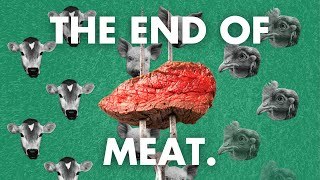
As awareness about the consequences of animal agriculture continues to grow, individuals and societies can play a crucial role in reducing the demand for animal products. This can be achieved by promoting and supporting alternative sources of nutrition, such as plant-based foods and meat substitutes. By embracing a plant-based diet, individuals not only contribute to reducing the suffering of animals in factory farms but also help mitigate the environmental impact of animal agriculture. Additionally, education and advocacy efforts can be employed to raise awareness about the benefits of reducing animal product consumption, emphasizing the health benefits, sustainability aspects, and ethical considerations associated with a vegan lifestyle. By actively promoting the reduction of demand for animal products, we can collectively work towards creating a more compassionate and sustainable future for animals and our planet.
Exposing cruel practices in factories
Exposing the cruel practices that occur within factory farms is an essential step in addressing the issue of animal cruelty. Through investigative journalism, animal rights organizations, and whistleblowers, the public is increasingly becoming aware of the inhumane conditions and treatment that animals endure in these facilities. Documentaries and undercover investigations have revealed overcrowded spaces, unsanitary living conditions, and abusive handling methods, highlighting the need for transparency and accountability within the industry. By shedding light on these practices, individuals are empowered to make informed choices about their consumption and support alternative options that prioritize animal welfare. This exposure not only challenges the ethical implications of factory farming but also encourages the development of more humane and sustainable practices within the agricultural industry.
Supporting small, sustainable farms
One effective way to address the issue of animal cruelty in factory farms is by supporting small, sustainable farms. These farms prioritize animal welfare and employ more humane practices in their operations. By choosing to purchase products from these farms, consumers can actively contribute to the demand for ethically sourced and humanely raised animal products. Supporting small farms also strengthens local economies, as these farms often play a vital role in the communities they operate in. Additionally, sustainable farming practices promote environmental stewardship by minimizing the use of harmful chemicals and reducing carbon emissions. By consciously supporting small, sustainable farms, individuals can make a significant impact in reducing animal cruelty and promoting a more ethical and sustainable food system.
Promoting compassion for all beings
One essential aspect of addressing animal cruelty in factory farms is promoting compassion for all beings. Recognizing the intrinsic value of every living creature and acknowledging their capacity to feel pain and suffer is crucial in cultivating a more ethical and compassionate society. By advocating for the rights and well-being of animals, we can strive towards a world where their lives are respected and protected. This can be achieved through raising awareness about the realities of factory farming, educating others about the ethical implications of their dietary choices, and promoting alternatives that prioritize the welfare of animals. By fostering empathy and understanding, we can inspire individuals to make conscious decisions that align with their values and contribute to the collective effort of ending animal cruelty.
Boycotting animal exploitation industries
To effectively address the issue of animal cruelty in factory farms, it is imperative to consider the role of boycotting animal exploitation industries. By consciously choosing to abstain from supporting these industries, individuals can directly impact the demand for products derived from animal exploitation. Boycotting can take various forms, such as refraining from purchasing products tested on animals, avoiding the consumption of meat, dairy, and other animal-derived products, and opting for cruelty-free alternatives. This deliberate choice sends a powerful message to these industries, signaling that consumers prioritize ethical practices and refuse to contribute to the suffering of animals. By boycotting animal exploitation industries, individuals can actively participate in the movement towards ending animal cruelty and promoting a more compassionate and sustainable future.
Educating others on veganism's impact
An essential aspect of advocating for the end of animal cruelty in factory farms is educating others on the impact of veganism. By providing accurate and compelling information about the benefits of a vegan lifestyle, individuals can inspire others to make conscious choices that align with their values. Educating others involves raising awareness about the ethical implications of supporting animal exploitation industries and the environmental consequences of animal agriculture. It also entails highlighting the numerous health benefits associated with a plant-based diet. Through engaging discussions, informative resources, and sharing personal experiences, individuals can encourage others to consider the positive impact that veganism can have on animal welfare, the environment, and personal well-being. By fostering understanding and promoting compassion, education plays a crucial role in transforming attitudes and behaviors towards a more humane and sustainable future.
Creating a more humane society
In order to create a more humane society, it is imperative that we extend our compassion not only towards animals, but also towards one another. This involves promoting empathy, respect, and understanding in our interactions with fellow humans. By fostering a culture of inclusivity and acceptance, we can strive towards a society that values the well-being and dignity of all individuals, regardless of their race, gender, socioeconomic status, or any other characteristic. This means actively challenging discrimination, advocating for equal rights, and working towards dismantling systemic injustices. Creating a more humane society necessitates recognizing the inherent worth and deservingness of every human being, and collectively working towards a future where compassion and justice prevail.
Taking a stand against cruelty.
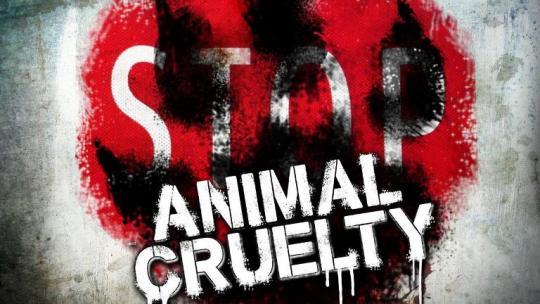
As we delve deeper into the issue of cruelty, it becomes clear that taking a stand against such acts is not only a moral imperative, but also a crucial step towards building a better world. It requires us to confront the uncomfortable truth that cruelty exists in various forms, whether it be towards animals, the environment, or even our fellow humans. By actively opposing and speaking out against acts of cruelty, we can challenge the prevailing norms and work towards creating a society that prioritizes empathy, compassion, and justice. This involves raising awareness about the consequences of our actions, supporting organizations and initiatives that promote kindness and respect, and advocating for stronger laws and regulations to prevent and punish acts of cruelty. By collectively standing up against cruelty, we can foster a more compassionate and equitable world for all living beings.
In conclusion, veganism plays a crucial role in ending the cycle of animal cruelty in factory farms. By choosing to adopt a plant-based diet, individuals are actively reducing the demand for animal products and therefore, reducing the number of animals suffering in factory farms. Additionally, advocating for stricter regulations and ethical treatment of animals in these facilities can create real change in the industry. It is up to each and every one of us to make conscious and compassionate choices in our daily lives, and together, we can work towards a more humane and sustainable future for all beings.
FAQ
How does veganism contribute to reducing animal cruelty in factory farms?
Veganism contributes to reducing animal cruelty in factory farms by eliminating the demand for animal products. By abstaining from consuming meat, dairy, and eggs, vegans effectively decrease the profitability of factory farming practices, which often involve cruel confinement, overcrowding, and inhumane treatment of animals. With fewer consumers supporting these industries, there is less need for the mass production of animals, leading to a decrease in the overall suffering and cruelty experienced by animals in factory farms. Additionally, veganism promotes a more compassionate and ethical lifestyle that encourages individuals to seek out alternative, cruelty-free options for food and other products.
What are some specific practices in factory farming that veganism aims to address and eliminate?
Veganism aims to address and eliminate specific practices in factory farming such as the confinement of animals in small cages or crates, overcrowding, routine use of antibiotics and hormones, forced feeding, tail docking, debeaking, and other forms of physical mutilation. Additionally, veganism aims to address the environmental impact of factory farming, including deforestation for animal feed production, water pollution from animal waste, and greenhouse gas emissions. By promoting a plant-based diet, veganism seeks to reduce the demand for products derived from these practices and advocate for more ethical and sustainable alternatives.
Can veganism alone bring an end to animal cruelty in factory farms, or are other measures necessary?
While veganism can significantly reduce animal cruelty in factory farms by eliminating demand for animal products, other measures are necessary to completely end animal cruelty. These measures include stricter regulations and enforcement of animal welfare laws, promoting alternative farming practices that prioritize animal welfare, and raising public awareness about the ethical implications of factory farming. Additionally, supporting organizations that work towards animal rights and advocating for policy changes can also contribute to the ultimate goal of ending animal cruelty in factory farms. Veganism alone is a powerful step, but it needs to be accompanied by broader changes in the industry and society as a whole.
Are there any successful examples or case studies where veganism has played a significant role in ending animal cruelty in factory farms?
Yes, there have been successful examples and case studies where veganism has played a significant role in raising awareness and reducing animal cruelty in factory farms. For example, the growth of the vegan movement has led to increased demand for plant-based alternatives, resulting in more companies offering cruelty-free options. This shift in consumer preferences has prompted some factory farms to adopt more humane practices to meet market demands. Additionally, vegan advocacy groups have worked tirelessly to expose the realities of factory farming, leading to legislative changes and increased public support for animal welfare. While there is still progress to be made, veganism has undeniably made a positive impact in reducing animal cruelty in factory farms.
What are some potential challenges or obstacles faced by veganism in its mission to end animal cruelty in factory farms?
Some potential challenges faced by veganism in its mission to end animal cruelty in factory farms include societal norms and attitudes towards animals, cultural and traditional practices, the influence of powerful industries, limited accessibility to vegan options, and the perception of veganism as an extreme or restrictive lifestyle. Additionally, there may be resistance or skepticism from individuals who are not aware of the ethical, environmental, and health implications of animal agriculture. Overcoming these challenges requires education, awareness campaigns, advocacy, and the promotion of alternatives that make veganism more accessible and appealing to a wider audience.
#animal welfare#animal rights#animal cruelty#veganism#go vegan#veganlife#factory farming#animals#veganfood
6 notes
·
View notes
Link
New York Times, April 15, 2023
E. showed Cedar at the Shasta District Fair, but the fair required 4-H members to hand over meat animals at the end of the fair for slaughter. On the last evening of the fair, E. sat in the pen on the straw beside Cedar, sobbing, as she tried to say farewell. ...
So the fair apparently brought in the Shasta County sheriff’s office, which obligingly dispatched two deputies to make a 500-mile round-trip drive to seize Cedar. When E. learned that her pet had been taken and slaughtered, she ran to her bed, pulled the covers over her head and wept. ...
This story moved me because I had goats on our family farm when I was roughly E.’s age. ... I no longer eat meat, for I remember too many sheep, goats, pigs and geese who were family friends. It’s the same reason I don’t eat beagles.
This is the truth that industrial agriculture tries to hide. We accept the slaughter of livestock and poultry, sometimes inflicting great cruelty, because the animals are an unfamiliar and undifferentiated mass, “beasts” raised in barns....
Factory farming, perhaps particularly of hogs and poultry, is extraordinarily efficient and sometimes painfully ugly. It thrives because it operates behind a veil of secrecy, enforced by “ag gag laws” that criminalize the taking of undercover video on factory farms. Abuse one animal, and you can be charged with a felony; abuse a million, and you have a business model. ...
Future generations may look back at our age and wonder in astonishment at how we pamper our dogs yet brutalize farm animals. By seeing her beloved Cedar as more than cuts of meat, E. may have been ahead of her time.
11 notes
·
View notes
Text
There are more than 1,000 US-style mega-farms in England, Wales and Northern Ireland, including some holding as many as a million animals, according to a new investigation.
29 notes
·
View notes
Text
Skinny Bitch Continues:
Chapter on Dairy was expected and about par for the course.
The chapter after that is beyond horrific. I am near tears.
Guess what it is about?
Meat processing.
#skinny bitch#book#diet book#books i am reading#healthy lifestyle#getting healthy#losing weight#healthy eating#fitblr#healthy habits#operation lose this gut#weight loss#operationlosethisgut#weight loss journey#horrible histories#this is horrible#yucky#yuck yuck yuck#factory farming#factory#meat and poultry#meat#meat processing
3 notes
·
View notes
Text
80 Degree Halloween
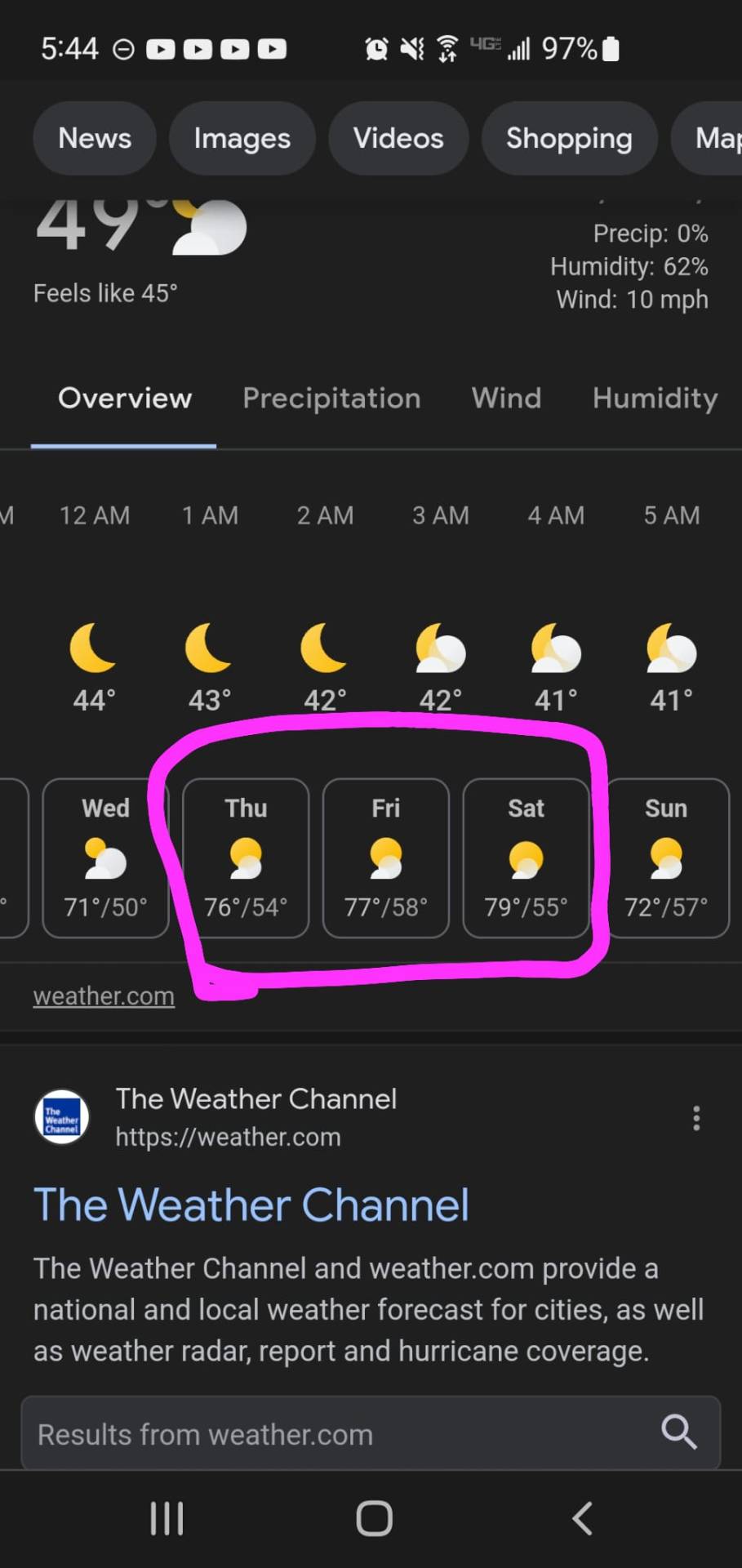
It was never 79 degrees on my birthday, October 28th.
Almost 80 degrees right before Halloween and November?
Absolutely never.
But everyone just stays consistently distracted now with all the social media scrolling, messenger apps, non stop notifications, endless shows to stream, multiple screens, videogames, anime, comic book movies & tv shows, star wars, halloween, amazon prime 1 day sale, thanksgiving, black friday, cyber monday, christmas, new years, presidential election --
Noone says, at a mass scale, "Hey, it was never almost 80 degrees Halloween weekend."
The humidity is one thing.
48 degrees & 90% humidity is a result of the bomb testing they did over the summer with resulting smoke falsely blamed on "canadian wildfires" when many in NYC reported seeing a mushroom cloud right before the smoke filled the skies on the east coast.
Humidity & air quality have not returned to normal since that day.
This is different where the temperatures have been steadily rising due to climate change, the polar ice caps are gradually melting, the ozone layer is becoming depleted, we have overextracted the worlds resources.

Capitalism means never having to say when.
Too many landfills, too many cars, too many flights to nowhwere, too many greenhouse emissions, too much drilling for oil, drill baby drill!, too much fracking, too many oceanic oil spills, too many nuclear power plants, too many humans, too much overpopulation, too much deforestation, too much factory farming, too much ethane gas emitted from cows fecal matter, too many millions of gallons of water needed every year for factory farming, too many cities, too many skyscrapers, too much pollution, too many factories, not enough clean drinking water
Too many bombs, too many cars clogging the highways, too much construction, too much machinery, too many houses with air conditioning set at 70 degrees, too many SUVs, too much industrial waste, too much industrial pollution, too many landfills, too much non-biodegradable waste, too much trash that wont break down in a landfill for thousands of years, too much smog, too many fossil fuels being burned, too many fires, too much smoke
Too many fast food chains, too many Mcdonalds burgers served, too many KFC wings, too many factories, too much carbon dioxide, not enough trees planted, too many species now extinct, not enough wildlife preservation, too many cruise ships polluting the oceans, too much recycling using more energy than it saves, too much plastic, too many experiments, too many chemicals, too many synthetic ingredients, too many labs, too much radiation, too much trash, too many chains
Too many amazon warehouses, too many big box retail stores, too many starbucks, too many plastic straws, too much overconsumption, too much greed, too much exploitation, too much raping mother earth, not enough abortions, too much overpopulation, too many people not enough resources, finite planet infinite greed, finite planet infinite capitalism, finite planet elon will just take us to mars, too many private jets, too much capitalism, not enough socialism, too much capitalsm, not enough solidarity, too much individualism, not enough communalism
Too many opioids, too many benzos, too many anti depressants, too much alcohol, too much electricity not enough solar power, too many luxury cars, not enough electric vehicles, too many cars, not enough bikes, too many highways, not enough bike lanes, too many lanes, not enough walkways, too many oil rig explosions, not enough clean up, too much money, not enough love, too much competition, not enough togetherness, too much dog eat dog, not enough lets not keep fighting over scraps, too many rich CEOs, not enough workers unions
Too many toxins, not enough herbs and plants, too many lobbyists, too many manufacturers, too many industry titans, too many leviathans, too many convenient scapegoats, too many targets of hate, too many layoffs, too much waste disposal, too many garbage pickups, too much trash per US citizen, too much smoke, too many pollutants, too much toxic waste dumped into water into poor and inner cities
Too many prisons, too many overcrowded jails, too much elder abuse in nursing homes, too much corruption, too many payoffs, too many grifters, too many wheelers and dealers, too many wall street executives, too many bernie madoffs, too much abusive porn, too much violence, too much cheap dirtiness
Too many walmarts, too many deals, too many dollar menus, too many dollaritas at applebees, too many people living paycheck to paycheck, too many individual 401k accounts, too many millionaires and billionaires, too many 1%ers
Too many false american dreams, too much meritocracy, too much keep up the good work, too many trips to the moon, too many rocket launches, too many lunchables, too many chicken mcnuggets, too many billions served, too many whoppers with cheese, too many water bottles, too many coke cans
Too much fast fashion, too many SHEINs, too many fashion novas, too much collagen, too many ccs, too much lip filler, too many bbls, too many augmentations, too many brow lifts, too many cheek fillers, too many facelifts, too many surgeries
Too much chemo, too much radiation, too much slashing and burning, too much fear of death, too much desperation to stay alive at any cost, too many people waiting to retire, too many people working to live, too many golden handcuffs, too many executives, too many VPs, too many Silicon Valleys, too many startups, too many uncanny valleys, too much virtual reality
Too many trash cans, too many plastic trash bags, too many paper towels, too much disposability, too much one use only, too many throwaways, too much extension of life at all costs, too many vacations, too many trips, too many homes, too many cars
Too much materialism, too much shallowness, too much superficiality, too many prison sentences, too much criminalization of normal behavior, too much medicalization, too many soldiers, too many products, too many costcos, too many gas stations, too many grocery stores
Too much excess, too much blind worship of success, too many genocides, too much jealousy, too much envy, too much child trafficking, too many rape parties, too many child soldiers, too many child prostitutes
Too many private swimming pools, too many gated communities, too many suburbs, too much middle class, too much low wage exploitation, too much stock market, too much dow jones index, too many returns on investment
Too many fur jackets, too many chinchillas dragging on the floor, too much theraflu, too much robitussin, too many covid vaccinations, too many vaccines, too much childhood autism, too many boys on ritalin, too many boys with adhd
Too much pathologizing of normal behavior, too many roofies, too many rape drugs, too many rohypnols, too many dollar trees, too many creature comforts, too much luxury, too many five star hotels, too many deliveries, too many amazon drivers, too many five belows, too many worker bees, too many garbage trucks, too many lobbyists
Too many zionists, too many western powers, too much modernization, too much technology, too much frictionlessness, too many diversionary tactics, too much repression, too much protestant work ethic, too much hubris, too much ego, too much money, too many elons, too many monarchs, too many queens of england, too many kings without a crown, too many rulers of the world, too many fake elections
Too much reality tv, too much double anal, too many hits to the head, too many hits under the chin, too many concussions, too many blue tents on the sideline, too many prison sentences, too many mass graves, too much ethnic cleansing
Too many taxpayer funded genocides, too many people afraid of being called an antisemite for telling the truth about US Israel zionism, too many kidnappings, too many abductions, too many shootings, too many stabbings, too many beatings, too many killings, too much spousal abuse, too much spousal rape, too many false agendas
Too many microwaves, too many cell phones, too many air conditioners, too many heat waves, too much climate change, too many drivethrus, too many distractions, too much doordash, too many surgeries, too many prescriptions, too much prescription abuse, too much alcoholism, too many suicides, too many rehab stints, too many revolving doors
Too many santa clauses, too much commercialization, too much commodification, too much consumption, too many rockefellers, too many rothschilds, too many bidens, too many mein kampfs, too many cultural revolutions, too many shibboleths, too many highways to hell, too many bridges to nowhere, too many dont ask dont tells, too much homophobia, too much transphobia, too much fear, too much hate, too much regret in hospices, too many lives wasted at a 9 to 5, too many too late realizations on deathbeds, too many trees cut down for paper...
#social justice#cornel west#green party#anti capitalist#antidepressants#big ag#big pharma#factory farming#corporatism#corporate slave#corporate greed#landfill#fast fashion#overconsumption#materialism#commodification#dehumanizes#war machine#propaganda#hidden agenda#government corruption#socialism#workers unite#union#wall street#1 percent#feminism#climate action#climate crisis#climate change
2 notes
·
View notes